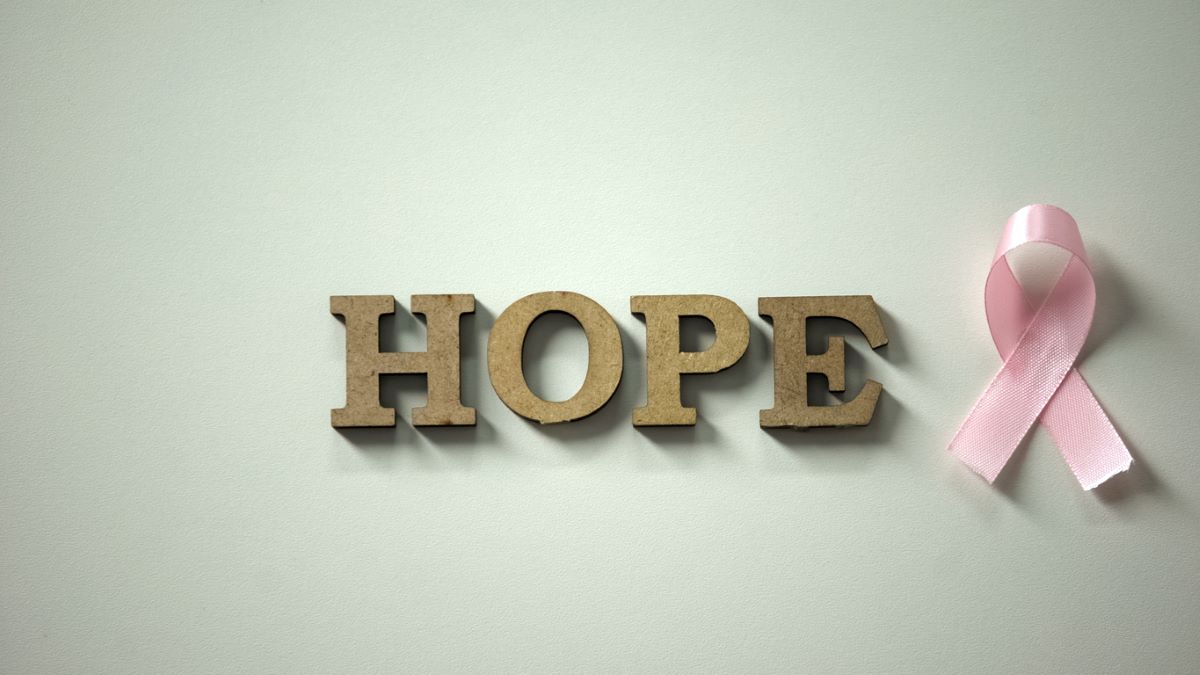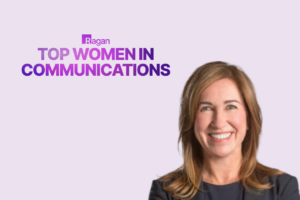This is my breast cancer survival story
Amid the pandemic, Cat Colella-Graham, founder and president of Cheer Partners, was diagnosed with breast cancer that required immediate surgery. Here, she details her journey—from diagnosis to surgery to emotions to learning to lean in on colleagues, family, friends—in honor of Breast Cancer Awareness Month.

Editor’s note: During Ragan’s Internal Communications & Culture Conference in October, Sarah Plaster, director of organizational communications, Aflac, and Laura Walmsley, SVP business development, Virgin Pulse, touched upon the next pandemic being the “pan-didn’t.” Read: As a result of the pandemic, people could not get regular screenings or health check-ups in person. Unfortunately, in some instances, that may have resulted in a more severe diagnosis. Both Plaster and Walmsley expressed that companies (and communicators) must address this topic more proactively this year and moving into next; encouragement of regular screenings and other health-related check-ups.
In the piece that follows, Cat Colella-Graham, founder and president of Cheer Partners, details her breast cancer survival story in honor of Breast Cancer Awareness Month. Like so many, the pandemic may have affected the severity of her diagnosis. She takes the reader on her journey from diagnosis to surgery, her return to work (too quickly), her lack of communicating to friends and colleagues her diagnosis and mindset and her advice to all who may be affected by a breast cancer diagnosis or any severe health-related diagnosis.
Like many of us, in January of this year with the hope of the vaccine, I returned to my regular medical checkups and screenings. I had a physical, went to the dentist and the OB/GYN. My OB/GYN took blood, including a redo of my BRCA (BReast CAncer gene), which I had done in 2010 when my mother was diagnosed with breast cancer. My doctor argued the test is much more sophisticated these days. He also sent me for a mammogram.
The BRCA results came back positive, and he outlined my options. In one scenario, I could get MRIs every six months and wait and see. In the other scenario, I could have a prophylactic mastectomy. As I was weighing my options with my family, something came up on my mammogram. My doctor referred me to a breast specialist. She sent me for test after test. What started as, I just want to rule out, became more concerning.
In April 2021, I was diagnosed with Pagets disease, typically a bone cancer, but in my case breast cancer. Because it is a cellular-based cancer, it is very hard to detect. I was told on April 20 that l would need a bi-lateral mastectomy with hybrid DIEP flap reconstruction. I was told I would have both an oncologist and a breast plastics specialist on my team, as well as a myriad of other surgeons. It was a quick timeframe to prepare. No time to deal with the news of having cancer. I just had to power through it. Pre-surgical testing included an MRA of my abdomen, lung x-rays, more MRIs. It was exhausting while continuing to work all the hours possible in a day.
Here’s where it got tricky.
I am the founder of an employee experience agency called Cheer Partners, and while we had many suitors for acquisition, Lippe Taylor rose to the top, an incredible agency that shares the same ethos and approach to team and client as we do. We closed on the deal March 27 in the midst of my diagnosis. Because I didn’t want to let anyone down, I was afraid of telling anyone outside of my family the news. I only told my CEO I needed surgery to solve for X and would need two weeks off.
That’s right, I only took two weeks off.
The surgery was 11 hours, and was thankfully successful (clean margins). The recovery was nothing I prepared for. You cannot walk upright for weeks resulting in lower back spasms. You need to sleep on a recliner to avoid sleeping on your side. The pain is so searing, nothing can be done, and all the prescriptions made me so ill, I would rather have had pain than risk the side effects. The incisions took 8 weeks to scar up, so gauze pads become a regular on your shopping list. You cannot fit into any of your clothes. The drains, of which I had eight, were not only a nuisance, but a very painful process that lasted, in my case, 11 days after I got home from the hospital. Your skin is very different, everything is very different. I felt guilty for feeling like I was no longer feminine, given I was cancer free. The swelling lasts far longer than you imagine, and you don’t feel skin sensation anywhere in the area where surgery was performed.
The one good thing I felt I could control was meeting with the two lead surgeons prior to the surgery and asking them to include interns and medical students in the operating theater. I felt this complex surgery should be a teaching moment. Because of this unusual request, the number of medical rounds I received as a result while in the hospital eliminated the possibility of any rest. But on that score, I have no regrets.
Here is where I have regret. I didn’t give my new boss or anyone at work the opportunity to react in any way. I didn’t tell anyone. I didn’t give them the benefit of the doubt. I just had revision surgery last week and took three days off for it, inclusive of the surgery day itself. I finally began to tell people and I’d like to share my takeaways.
- Don’t go it alone: Even in a time of COVID-19, in fact especially, you need community, and you are the one to set the tone. Because of the pandemic, I had to walk into the hospital by myself, sit by myself waiting for my turn on the table and was allowed no visitors while in the hospital. It’s incredibly isolating, so don’t make it worse than it has to be. Your friends, family and colleagues want to help.
- Do practice self-care: Advocate for your mental and physical health. Get your checkups, take 20 minutes to yourself during the day, get that morning walk in, give yourself time. I should have taken six weeks minimum off from my first surgery, I took two. And I have paid for it mentally and physically. On this score, I really feel I failed the women I lead, including my adult daughter, to let them think the little time I took was okay, or that I am invincible. I am not, and will commit to doing better walking the walk.
- It’s ok to say no: I am a huge fan of Derek Sivers, who’s decision tree philosophy of Hell Year or No is so aspirational to me. Don’t feel pressured to go out in the world until you are ready. Don’t accept the extra workload because a former colleague needs your help. Don’t agree to stay late, or have people over. Turn off the video on your Zoom calls. Embrace “no.”
- Be kind to those who do know and don’t know how to react: When I told people, there was a lot of pity, which I didn’t want. And when they asked, “What can I do?,” I generally said, “Nothing, thanks.” If you hear someone has cancer, ask, “What do you need?” I can largely say that feels more collaborative. I can admit I wasn’t as good at letting people in, and for those who checked in and I dismissed, I regret that decision.
- Grieve and Accept: When you lose a body part, even if it replaced with something brand new, grieve. I look at myself physically these days as a patchwork of scars, unsightly even to me. The doctors did a fantastic job, but it is still important to grieve for the loss of your former self. What I have found now seven months into this journey: I was okay in many ways to let go of my former self. I have newfound perspective. I don’t take things as personally. I also might argue I can float in a pool longer than anyone else.
- Embrace the Present: Take the time to live the journey and what it means to you personally. Don’t get swallowed up in doom scrolling of what the future could be. Wherever you can find joy, be intentional about it. I am the lucky one in this story, and I take nothing for granted.
Now in speaking to breast cancer survivors, I have found a new community of people who live each day in the present, who will offer all the advice and perspective you need to process. I also have found they were all scared, scarred and lonely in a walk that no one wants to take. Every one’s journey is really unique, and thereby unrepeatable in any way. I am grateful to my doctors who advocated for my health even while I objected to the tests and timing given we were just acquired. I am deeply grateful to my family and select friends who joined me on the journey. I am grateful to my CEO, who when I finally told him what happened, couldn’t have been more gracious and kind.
It’s breast cancer awareness month, so I would be remiss if I didn’t decide to tell my story now, as I am one of the many lucky ones. Science is making great leaps on eradicating this disease every day. In my case, had I not resumed my regular visits end of January, I would not have been as lucky as to only have the surgeries I did. On the other hand, had I gone earlier, which was not possible due to the pandemic, I likely would have had a small surgery. So, please schedule your mammograms. If you feel something is there, and your doctor doesn’t agree, get a second opinion. Practice monthly self-tests. Be aware of changes in your sleep, weight, appetite, skin. I have my pet scan next month, and look forward to seeing my oncologist only twice a year. There is hope, and there is help. It’s up to you to embrace both.
Cat Colella-Graham is founder and president of Cheer Partners, an employee experience agency based in NY.






